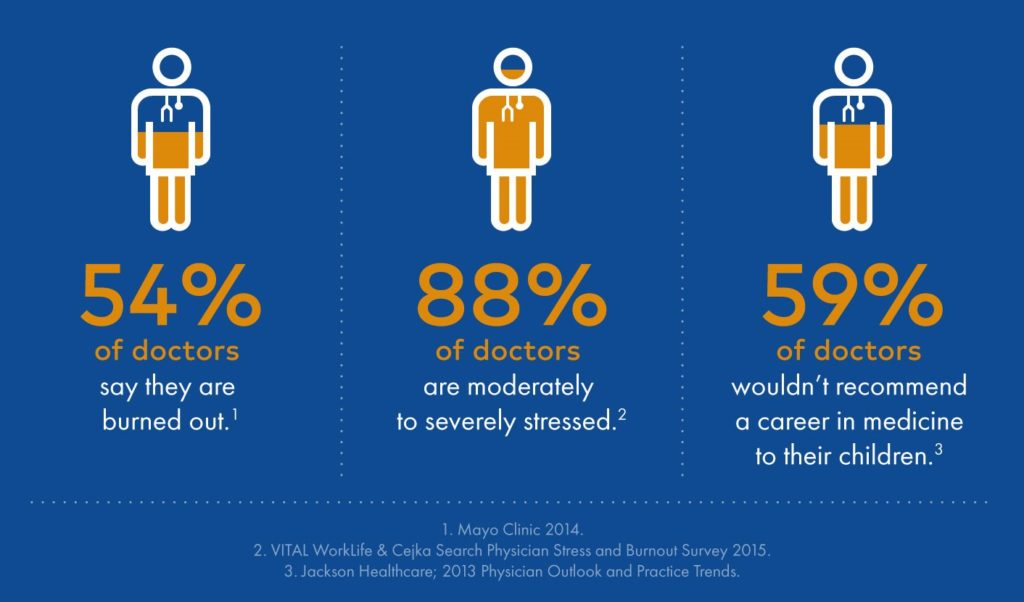No matter your profession, burnout, which is caused by chronic stress, is something many of us have experienced. On top of our ever-changing work loads, the news cycle is non-stop, we’re constantly bombarded by social media and our bosses know we can be reached via email at any time – it’s a lot to handle plus trying to have a social life. Burnout is more than just being stressed or having a tough day on the job – it’s stress to the next level typically characterized by emotional exhaustion, feelings of ineffectiveness and cynicism. The way in which work-life balance is structured in American society has cultivated a rich breeding ground for burnout to flourish across fields, particularly in the sciences. If you’re worried about yourself or a colleague, this Nature article has a great list of signs of burnout for reference.
While burnout is not technically deemed a medical illness in America, it can definitely lead to issues such as depression that need to be taken seriously, especially since rates of depression in bioscience graduate students is six times higher than the general public. A recent report from a variety of Harvard and Massachusetts medical organizations concluded that burnout in physicians is a public health crisis. Obviously the main concern here is for the mental well being of physicians, but we also have to consider that patient care is also probably suffering.

Ok, all of this sounds super important, but how can we actually tackle burnout?
Studies suggest that improving the amount of work-time devoted to activities that are most meaningful to you is particularly helping in combating burnout. Working to improve your work-life balance, taking more small breaks from work and doing more exercise will help. And while I definitely don’t disagree with any of these suggestions, part of the problem to begin with is that physicians and researchers don’t feel like they have time to make these adjustments in the first place. The Harvard report mentioned that while wellness approaches (yoga, mindfulness, self-care) are good in theory, they should be employed in complement to structural solutions, such as proactively treating mental health and hiring Chief Wellness Officers to continually monitor physician burnout. Hopefully academic institutions start taking this seriously, as well.
There are other alternatives to handling burnout that maybe aren’t as obvious. Earlier this year my blog focused on a great science outreach event (She Looks Like A Cardiologist), hosted by Dr. Kathryn Berlacher, where 28 female high school students interested in becoming cardiologists got to meet with local women in cardiology. When I asked Dr. Berlacher what motivates her and her colleagues to create events like this or volunteer at other science outreach initiatives she mentioned:
“Things like this (and all our other volunteering), keeps us grounded and really provides perspective. I honestly think it’s a great way to bond – AND to combat burnout in the field, which is another hot topic. If you feel valued and feel that what you’re doing is making a difference, then you’re much less likely to get burnt out at your job.”
Getting out of the lab or hospital to give back to the community is another anti-burnout tactic professionals can use to switch up their daily routine that has worked well for others. Personally, it’s great to hear that approaches such as this help combat feeling burnt out because I love participating in science outreach and I think that’s the key to handling this issue, enjoying how you spend your time. Because that’s why we all went in to research and medicine in the first place, we loved doing it! If enough people in our fields start to take this issue seriously, we can begin to make the structural changes needed to make the difference – let’s start now.
Looking for more resources or takes on this discussion? Luckily the 500 Women in Medicine and the Medical Professionalism Project had a great twitter chat under the #MedBurnout tag that is definitely worth checking out.